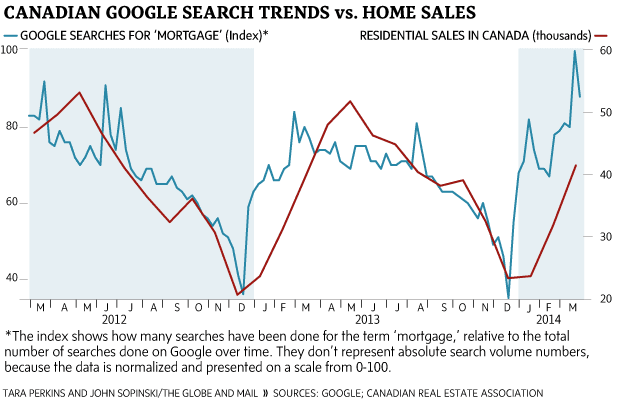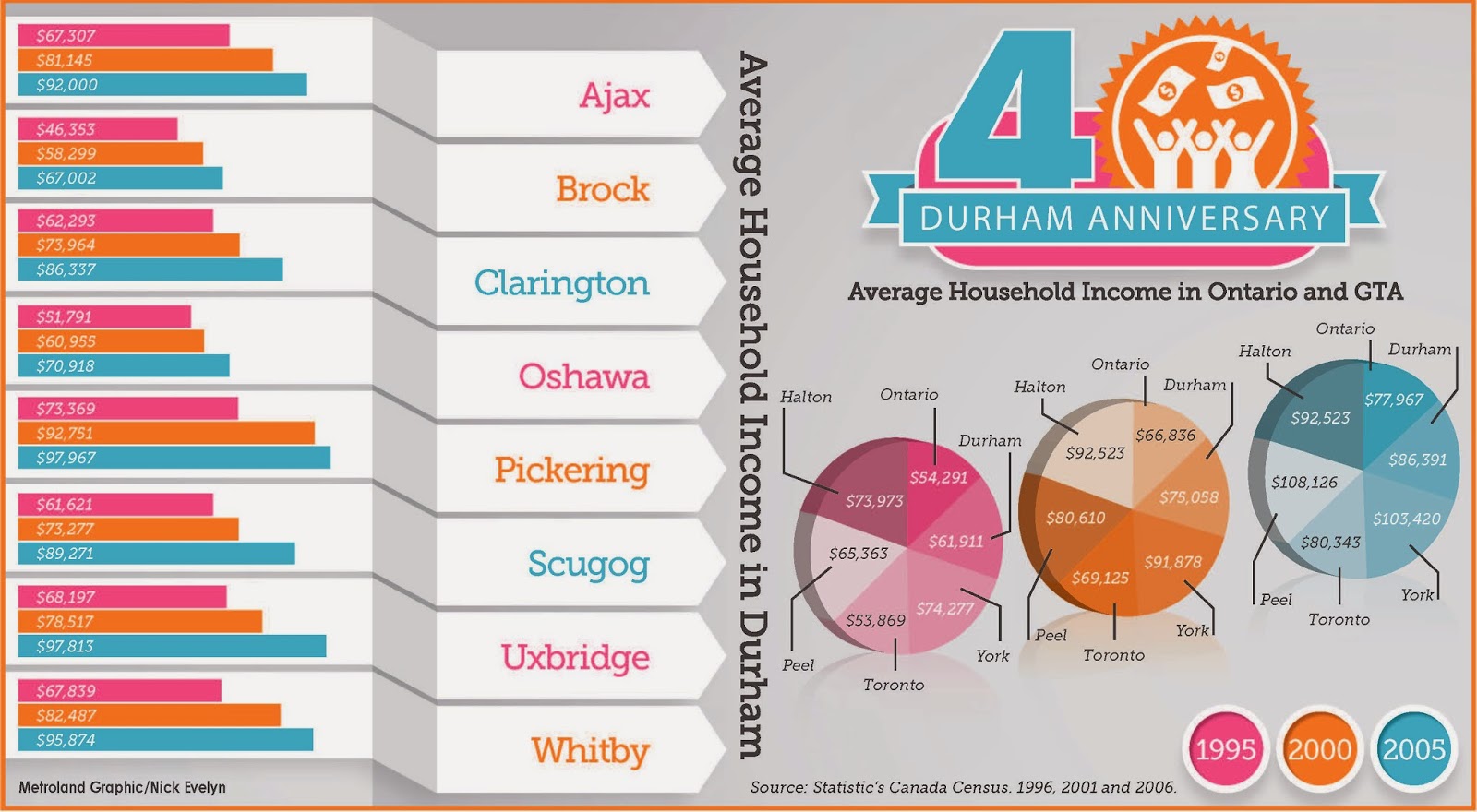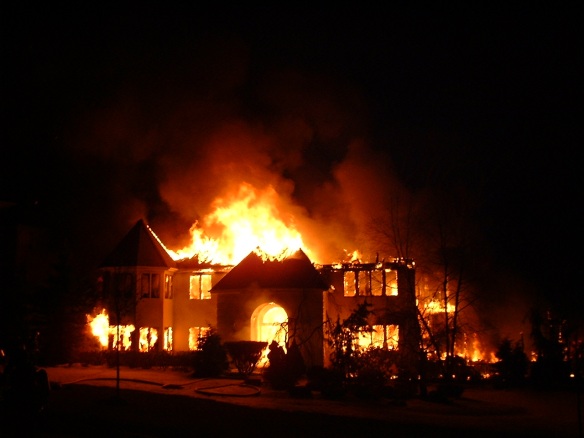An article in the Globe and Mail, published April 29th, shows what Google searches reveal about Canada’s housing market.
It looks like the number of times that Canadians search for
the term “mortgages” in Google is a decent indicator of what home sales will
do. And if that’s true, the spring might yet show a spike in the number of
homes changing hands, followed by a levelling off.
We used Google trends to track how many Canadians had
searched the term “mortgages” between March 2012 and March 2014. We then
overlaid that with the number of existing homes that were changing hands in
each month over that time frame. And voilà.
Google’s chief economist, Hal Varian, has said that, in
hindsight, Google search terms shed light on the evolution of the U.S. subprime
mortgage crisis. Searches in the United States for terms such as “property
management,” “home insurance,” and “real estate agencies” were correlated to
the number of new homes that were selling as foreclosures started to rise and
median house prices dropped.
So, if the “mortgage” search is a good barometer for Canada,
what does it predict? Searches for the term peaked on Thursday March 27, when
they temporarily spiked, and levelled off shortly thereafter. That peak day,
probably not coincidentally, was when Bank of Montreal announced that it was
bringing back its 2.99 per cent five-year fixed mortgage rate (which prior to
that had been 3.49 per cent).
Click here to read the full article.
If you need help in finding a house in Durham Region or are already a homeowner and wish to move to a new house in Pickering, Ajax, Whitby, Brooklin, Oshawa, Courtice or Bowmanville, please contact me or/and visit my website. I can answer all of your questions, help you find the right neighbourhood and the perfect house at a great price.
Randy Miller
Sales Representative
Re/Max Rouge River Realty Ltd., Brokerage
905-668-1800 or 905-427-1400
randy@randymiller.ca
www.randymiller.ca
Re/Max Rouge River Realty Ltd., Brokerage
905-668-1800 or 905-427-1400
randy@randymiller.ca
www.randymiller.ca












